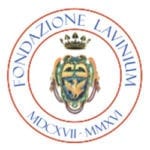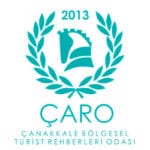Antandros approfondimenti
antandros in-depth
Antandros – In-depth
the pelasgians
According to ancient historians, who only pass on confused information, the Pelasgians inhabited Greece before the arrival of the Hellenic people. Modern historians of the 19th century elaborated many theories on the physiognomy of this mythical people, trying to reconstruct a Pelasgian descent for the Italian civilization, with the aim of claiming ancient origins independent of the Greek culture. Later, the scientific research, clarifying the origins and culture of the peoples of ancient Italy, proved that the Pelasgian myth was unfounded, demonstrating the legendary character of the traditions on this people.
the aeolians
The Aeolians are one of the three Greek mythical lineages, which, according to the tradition of the end of the second millennium BC, along with the Dori and the Ioni , supplanted the Mycenaean civilization. The Aeolians initially inhabited Thessaly and Boeotia, but later, driven by the pressure of the Doric migration, many of them moved to that part of Asia Minor which in fact took the name of Aeolian and where they formed a dodecapolis. The Aeolians of Asia passed in the sixth century. under the rule of the Lydians and then of the Persians, until in 333 B.C. they became part of the reign of Alexander the Great and then of his successors, the diadochi, to fall, finally, under Roman domination.
the thracians
The Thracians are named for the first time in the Iliad of Homer, to indicate peoples settled north of Hellas. They were Indo-European people living in a vast region of the Balkan Peninsula overlooking the Black Sea, a region nowadays divided among Greece, Turkey and Bulgaria, where are known many tombs that are attributed to the Thracian culture from the fourth millennium B.C. The coasts of Thrace were the subject of an intense Greek colonization. In 492 B.C. Thrace was occupied by the Persians; later it fell under the influence of Athens and then under the Macedonian rule. In 47 A.D. the Emperor Claudius converted the territory to a Roman province, on the basis of agreements with the local kings: thus the Roman province of Thrace was born.
Peloponnesian War
It was one of the most important historical events in the history of ancient Greece. The war, which between 431 and 404 B.C. opposed the Athenians to the Spartans with their respective coalitions, the Delian League and the Peloponnesian League, was caused mainly by the will of Athens, led by Pericles, to assert its hegemony over all Greeks. After several phases, with ups and downs, and some heavy defeats suffered by the Athenian fleet, the city of Athens in 404 was forced to capitulate. As a result of the destruction caused by the conflict, the treasures spent in the war and the enormous human losses, Greece found itself enormously impoverished and weakened.
the persians
The Persians were an Indo-European population that had inhabited the Iranian plateau since the 2nd millennium B.C. that is, the vast region east of Mesopotamia. The Iranian communities were dominated by a small group of aristocratic families, from whose ranks came the king. In the seventh century B.C. emerged the rulers of the Persian family of the Achaemenids, who conquered the dominance over the entire region unifying it in a single kingdom, which also included the Medes. It was Darius I (521-485 BC. who brought the empire to its maximum extent, clashing with the Scythians and Greeks and , occupying Thrace and Macedonia.
After the conquest of Alexander the Great, in 332 B.C. the Persian Empire lost its political independence and from that moment began the cultural fusion with the Greek world.
Farnabazo
He was governor (satrap) of Phrygia from 413 BC, one of the administrative and military districts into which King Darius I had divided the Persian Empire. During the Peloponnesian War he was favorable to Sparta, so much so that he had killed the Athenian general Alcibiades who, accused in his homeland of impiety, had taken refuge with him.
dardano
According to legend, Dardano was the son of Zeus and Electra and the progenitor of Ilo, the founder of Troy, and therefore also the ancestor of Priam: for this reason in the epic “the Dardani” and “the Trojans” are often synonymous. According to Homer, Dardano was an indigenous king of Troy; according to Virgil, however, he is originally from the Etruscan city Corythus, identified (by Silius Italicus) with the city of Cortona: for this reason according to the Trojans the prophecy of Ainos, the preacher of the sanctuary of Apollo in Delo, is “antiquam exquirite matrem” (Eneide, III, 96), “cercate l’antica madre”, “look for the ancient mother” (?), namely Italy. in the Aeneid, indeed, the journey of Aeneas is a return route of the journey made by the ancient ancestor from Italy to the Troade. Thus the Trojans of Virgil become Italian “oriundi”.
Antandros in-depth
Map




























Previous
Next
